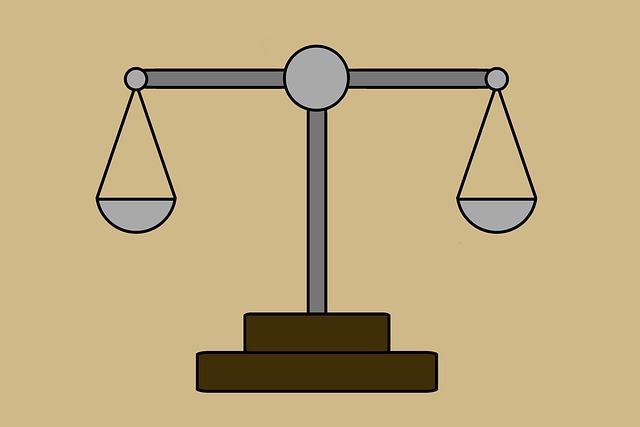In the complex world of white-collar crime cases, healthcare law firms play a crucial role in mitigating penalties for clients facing charges like corporate fraud, embezzlement, and corruption. These firms leverage their expertise in healthcare regulations, such as HIPAA and anti-kickback laws, to develop strategic defenses. Through thorough fact investigation, identifying legal defenses, and skilled negotiation, they aim for the complete dismissal of charges or significant penalty reductions. Post-trial actions, including appeals, new evidence presentation, and negotiations, further protect clients' interests and ensure long-term sustainability for healthcare entities.
In the intricate landscape of healthcare law, navigating white-collar crime cases is a complex challenge. Healthcare Law Firms play a pivotal role in mitigating penalties for organizations and individuals entangled in these cases. This article delves into the strategic approaches these firms employ to defend against legal implications, focusing on understanding white-collar crime dynamics and implementing effective penalty reduction strategies. From post-trial actions to appealing decisions, we explore a comprehensive framework designed to minimize consequences.
- Understanding White-Collar Crime Cases and Their Legal Implications
- The Role of Healthcare Law Firms in Mitigating Penalties
- Strategies for Effective Defense and Penalty Reduction
- Post-Trial Actions and Appealing Decisions: A Comprehensive Approach
Understanding White-Collar Crime Cases and Their Legal Implications

White-collar crime cases, often involving corporate fraud, embezzlement, or corruption, present unique legal challenges. These sophisticated offenses typically occur within organizations and are designed to evade traditional detection methods. As such, understanding these cases requires a nuanced approach to navigate the complex web of regulations and legal precedents. A key aspect in managing these situations is mitigating penalties for both corporate and individual clients.
The defense strategy often focuses on achieving extraordinary results by thoroughly investigating the facts, identifying legal defenses, and leveraging expertise in white-collar defense. This involves analyzing the specific conduct, intent, and any mitigating factors to build a robust case. By employing these tactics, law firms specializing in healthcare law can guide their clients through the legal implications of white-collar crimes, ensuring fair treatment and minimizing potential penalties.
The Role of Healthcare Law Firms in Mitigating Penalties

Healthcare Law Firms play a pivotal role in mitigating penalties for clients facing white-collar crime cases, particularly in complex areas like healthcare regulations. With an unprecedented track record of success, these firms employ strategic legal approaches to navigate intricate legal landscapes, aiming for the complete dismissal of all charges. They understand that white collar and economic crimes often involve sophisticated schemes and multifaceted regulatory issues, requiring a nuanced understanding of both criminal and civil law.
By leveraging their expertise in healthcare law, they can identify potential vulnerabilities and weaknesses in the prosecution’s case, crafting robust defenses tailored to these specific offenses. Their goal is not just to minimize consequences but to achieve a complete resolution, ensuring that clients can move forward with their lives and businesses while upholding the integrity of the healthcare industry.
Strategies for Effective Defense and Penalty Reduction

In the realm of healthcare law, where complex regulations and ethical considerations intertwine, effective defense strategies are paramount to mitigating penalties in white-collar crime cases. The key lies in a multifaceted approach that combines robust legal argumentation with a deep understanding of industry standards and regulatory nuances. By presenting well-researched defenses, leveraging exculpatory evidence, and employing skilled negotiation tactics, law firms can achieve extraordinary results for their clients. This involves navigating the intricate web of regulations, such as HIPAA and anti-kickback laws, to identify potential loopholes or areas of misinterpretation that can weaken the prosecution’s case.
Firms with an unprecedented track record in winning challenging defense verdicts often emphasize proactive risk management. This includes regular compliance audits, employee training on ethical practices, and the implementation of robust internal controls. By fostering a culture of adherence to legal and ethical standards within healthcare organizations, these law firms not only strengthen their defenses but also contribute to the overall improvement of industry practices. Such strategies not only help in penalty reduction but also ensure long-term sustainability and reputational protection for healthcare entities.
Post-Trial Actions and Appealing Decisions: A Comprehensive Approach

After a trial, the journey is far from over for healthcare law firms navigating complex legal landscapes. Post-trial actions are crucial steps in mitigating penalties and ensuring the best possible outcome for their clients, especially in white-collar crime cases. This comprehensive approach involves meticulously reviewing the trial verdict and crafting a strategic plan to challenge or accept the ruling, focusing on mitigating any significant penalties.
A skilled healthcare lawyer will guide their client through all stages of the investigative and enforcement process, aiming for a complete dismissal of all charges or, at the very least, achieving extraordinary results that significantly reduce the impact. This may include filing appeals, negotiating with prosecutors, or presenting new evidence to support their case. By employing a robust post-trial strategy, healthcare law firms can protect their clients’ interests and help them move forward following a legal setback.
Healthcare law firms play a pivotal role in navigating complex white-collar crime cases, particularly regarding penalties. By employing strategic defenses and utilizing post-trial actions, these firms can significantly mitigate the impact on healthcare organizations. Understanding the legal implications, implementing effective strategies, and adopting a comprehensive approach are essential to protect institutions from severe consequences. Through expert guidance, healthcare law firms ensure that their clients remain resilient in the face of scrutiny, emphasizing the importance of proactive measures to avoid or reduce penalties.






